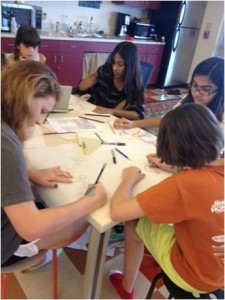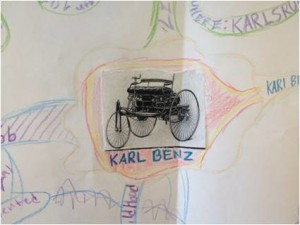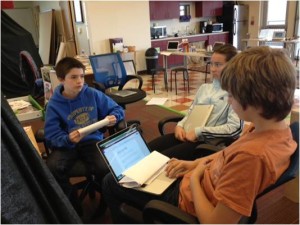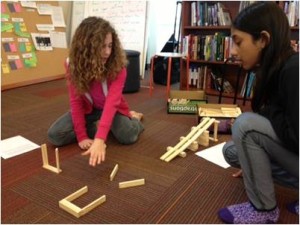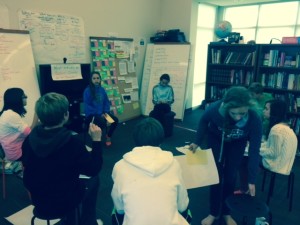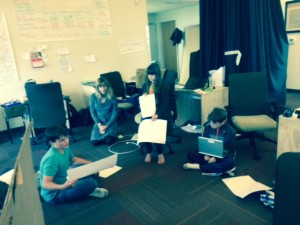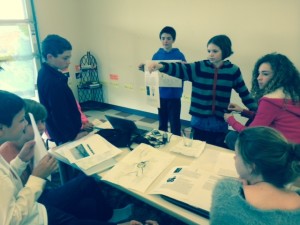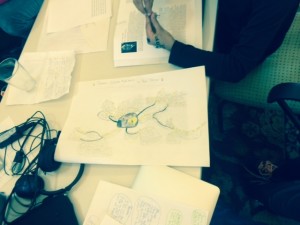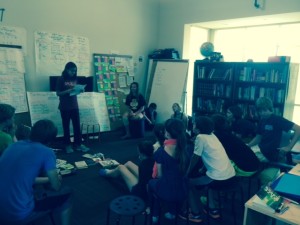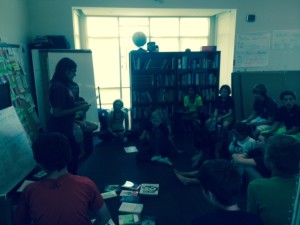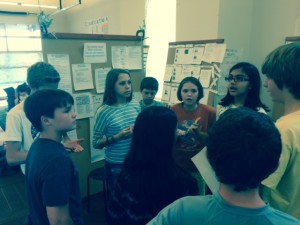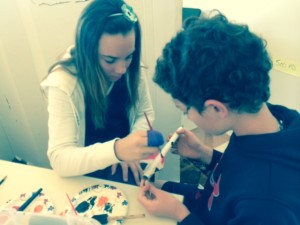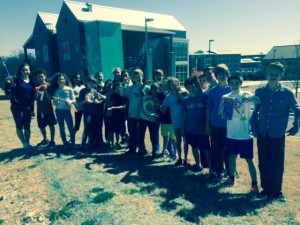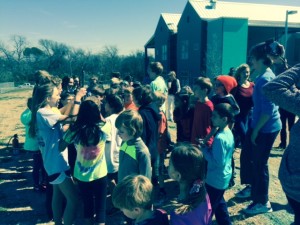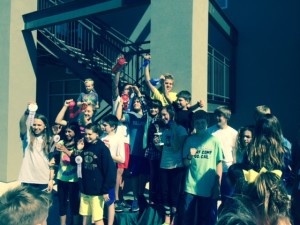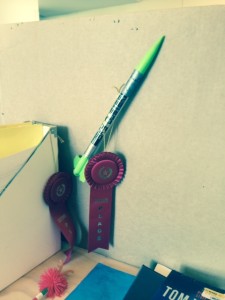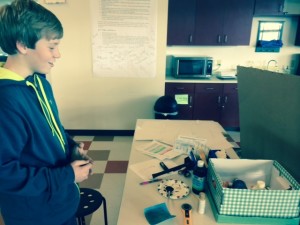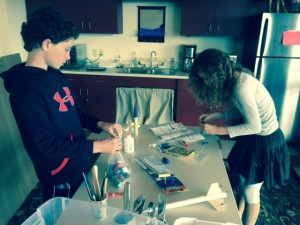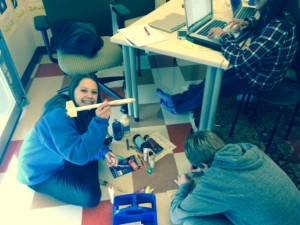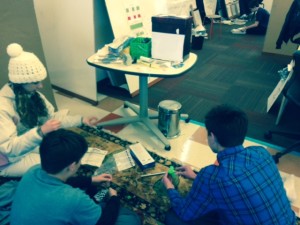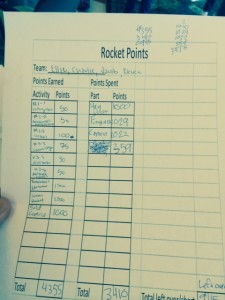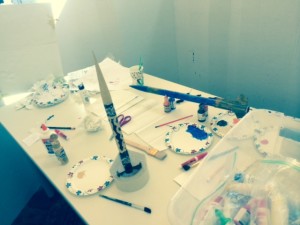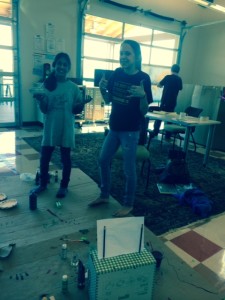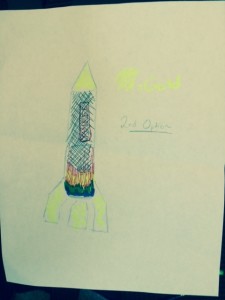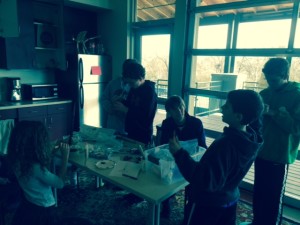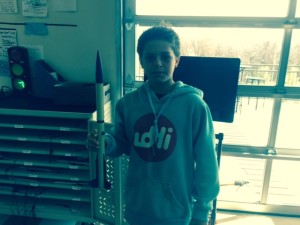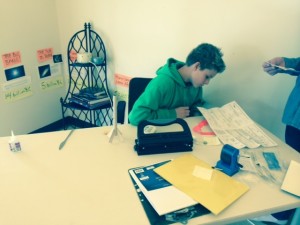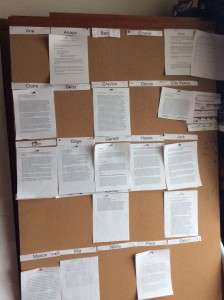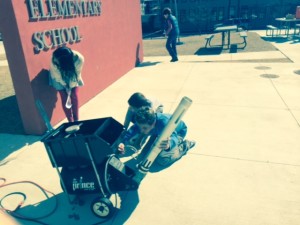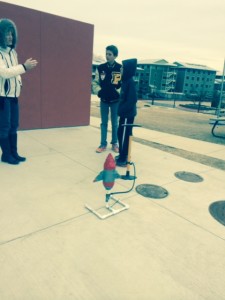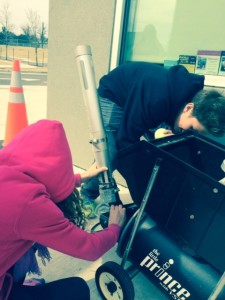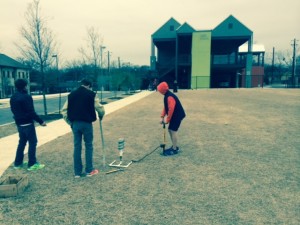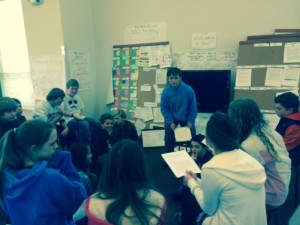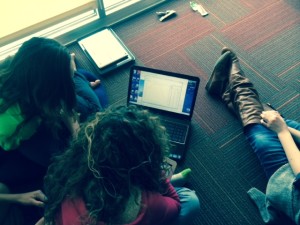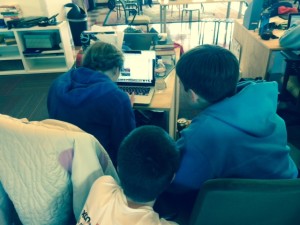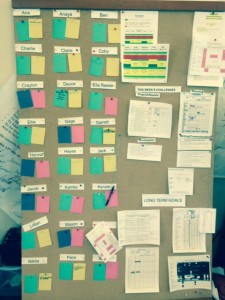The high scores the new Creator Quest received on this week’s Fun/Important graph indicate that Eagles are finding the work both engaging and relevant to their Hero’s Journeys- for most of them, in stark contrast to last session’s Rocket Quest. Why?
Guides had theories, yet despite our “no experts” ethic, we suspected the best way to answer this particular question would be to take it to the ones in the know: the Eagles themselves. We asked: Why were you so focused this week? How is this project different for you? Eagles’ responses fell under four main headings.
1. Choice
High energy around getting to choose a hero who relates to their own gifts and passions. A dedicated violinist chose Stradivari, a budding filmmaker chose Walt Disney, a talented cinematographer chose the Lumiere brothers, and one Eagle with razor-sharp focus on becoming a future race car driver chose Karl Benz.
They appreciate the independent nature of this project, which provides the freedom to do research, write and draw mind maps during core skills, and conversely, to continue core skills work in the afternoons during “project time”.
And they love getting to design their Rube Goldberg device from scratch, with their own choice of materials.
2. Diversity
The combination of specific, individualized work that must still fit into the broader goals of a team resonates with the Eagles’ powerful commitment to both their own Hero’s Journeys and to their learning community. The diversity of hands-on drawing/design/building, along with deep research and multi-draft writing, keeps them energized.
In the words of one Eagle: “This project has everything: drawing, writing, research, history and even public speaking.”
3. Games
“This project has games within games,” one Eagle noted, mentioning the Cornucopia, the pitches, and the final exhibition/competition.
While much of the work is independent, small groups come together for critiques, and larger groups form for pitches.
There’s nowhere to hide, and while no one wants to lose, if they don’t ace one game they know there will be another they can try to beat. “Some of us will be motivated more by the Rube Goldberg presentation, some of us by the speech.” And Eagles with the highest standards are in the powerful position of inspiring and lifting up the rest.
4. High Stakes
The Eagles crave meaningful experiences and real-life lessons. When stakes feel high to them, they soar. The word “pressure!” came up quite a bit in our discussion, but in the context of a challenge to be met rather then a negative to be avoided. The space hums with excitement. Speeches, pitches, a public display of a giant Eagle-crafted Rube Goldberg chain reaction… AND a very special reward for the team with the highest average scores as rated by the Acton community.
Nikita’s slogan for this session best sums up the enthusiasm and focus in the studio:
It’s ON!
